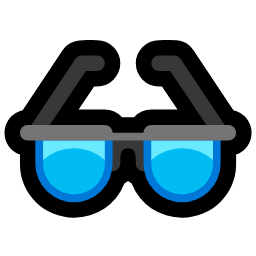🎯 Introduction
It was another energetic week in the world of smart eyewear. Major platform partners and legacy brands continued to push hardware and software integrations, while privacy-focused challengers and manufacturers with new form factors kept the headlines varied.
Below, we summarise the most relevant announcements, what they mean for the market, and the key trends to watch next week.
🗞️ Top Stories
1️⃣ Meta Expands Ray-Ban Smart Glasses Availability to India
Meta confirmed a regional launch for its AI-powered Ray-Ban Meta Gen 1 smart glasses in India, scheduled for November 21, 2025. Consumers can register for “Notify Me” alerts starting November 6 via the official Ray-Ban India website.
Read the original story on The Times of India →
Why it matters: This expansion shows Meta’s intent to treat smart glasses as a mainstream consumer product, not a niche gadget. By launching in a massive market like India, Meta tests large-scale manufacturing, pricing, and AI-powered experiences under real-world conditions.
2️⃣ Google and Magic Leap Reveal Android XR Prototype with Gemini Integration
In one of the week’s most interesting announcements, Google and Magic Leap jointly unveiled a new Android XR prototype — a smart-glasses device powered by Gemini AI and combining Magic Leap’s optical and waveguide expertise with Google’s microLED display technology.
Read more on TechRadar (Spanish version) →
Demonstrations showcased live AI-assisted contextual understanding and multimodal visual queries.
Why it matters: This collaboration signals Google’s renewed commitment to XR hardware. If commercialized, it could compete directly with Meta and Samsung’s upcoming XR wearables, potentially positioning Android XR as an open platform for mixed reality and AI-driven interaction.
3️⃣ Lenovo Introduces Smart Glasses with Integrated Display, Real-Time Translation, and Smart Ring Pairing
Lenovo presented new smart glasses that combine:
- An integrated micro-display
- Real-time language translation
- Connectivity with a smart ring that allows gesture control and notifications
Read the full article on Andro4all →
The product targets professionals who need multilingual collaboration tools and seamless access to information during meetings.
Why it matters: Lenovo is leaning into productivity and enterprise use-cases, differentiating itself from the fashion-first approach of Meta’s Ray-Ban line. The combination of smart glasses + smart ring also illustrates a growing trend toward interconnected wearable ecosystems.
4️⃣ Even Realities G2 — A Privacy-Focused Alternative
Even Realities announced its upcoming G2 smart glasses, emphasizing user privacy and minimalism. The model reportedly features fewer cameras and onboard sensors, focusing instead on local data processing and transparency in user control.
Why it matters: The G2 represents a counterpoint to data-heavy devices like Meta’s — appealing to users who prioritize security and privacy over feature quantity. Smaller, privacy-driven companies like Even Realities may push larger manufacturers toward clearer privacy policies and stronger data protection standards.
🔍 Trends and Insights
Market Segmentation Accelerates
This week’s developments highlight a clear segmentation in the smart-glasses market:
- Mainstream fashion-tech hybrids: Ray-Ban Meta models targeting everyday users.
- Platform and optics integrators: Google + Magic Leap prototype, blending advanced optics with deep AI systems.
- Enterprise and productivity devices: Lenovo’s glasses, designed for meetings, translation, and work environments.
- Privacy-first challengers: Even Realities G2, positioning minimal data collection as a core value.
Short-Term Expectations
- Further regional rollouts and pricing announcements from Meta and others.
- More AI-driven features like real-time translation and contextual assistants.
- Increased interoperability between wearable devices — glasses, rings, and watches.
- Privacy-focused branding to become a competitive differentiator.
🧭 What to Watch Next Week
- Meta’s pricing and early feedback from Indian consumers.
- Any SDK or developer tools announcement from Google or Magic Leap for Android XR.
- Details about Lenovo’s connectivity between its glasses and smart ring (standard Bluetooth vs proprietary protocol).
- Even Realities’ technical documentation and privacy whitepaper release.
💬 Final Thoughts
The smart-glasses market is entering a multi-track growth phase: mass-market expansion, enterprise productivity, and privacy innovation are all advancing in parallel. Developers and investors should watch for which ecosystems open their SDKs and APIs first — these will shape the next wave of AR and wearable applications.
⚡ Stay Connected
Bookmark Smart-Glasses.com, subscribe to our weekly newsletter, and follow us on social media for continuous updates from the world of wearable technology.
The future is visible — one lens at a time.


Leave a Reply